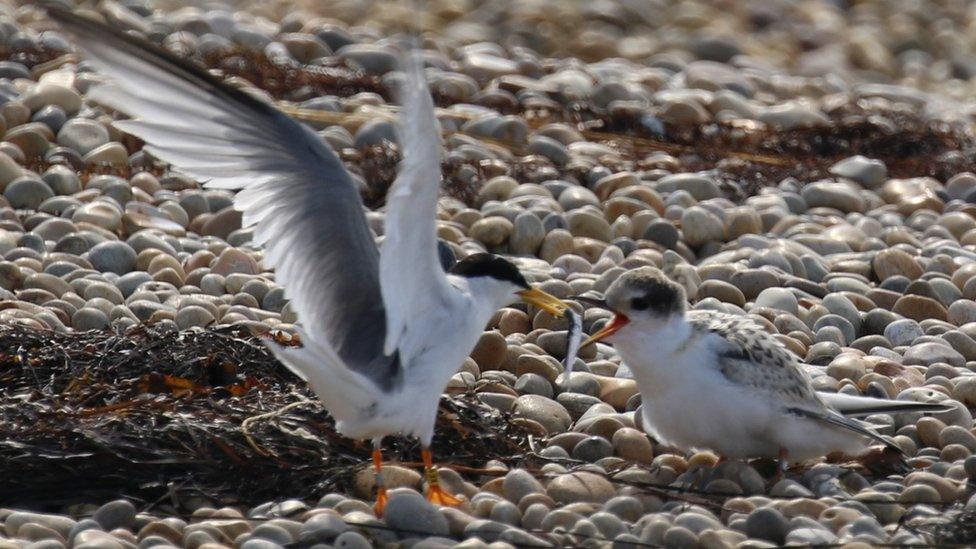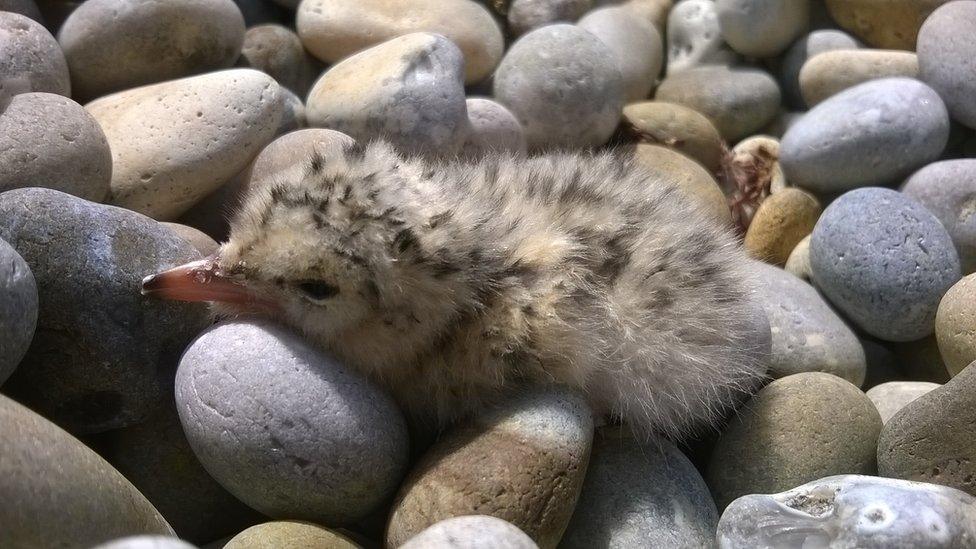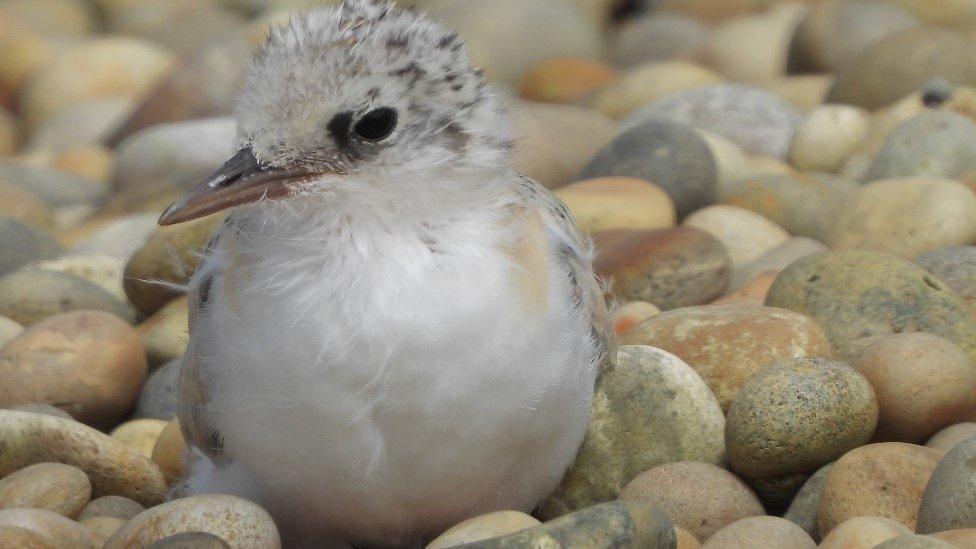Hedgehog fence aids recovery of threatened seabirds
- Published

The Chesil Little Tern Recovery Project aims to reverse the decline of the species
A threatened species of seabird is making a comeback in Dorset, with the help of a fence to keep hedgehogs away.
The RSPB said at least 45 little terns successfully fledged at Chesil Beach in 2023, compared with just three surviving fledglings in 2021.
Trail cameras revealed that hedgehogs had been eating the eggs.
Charity Hedgehog Friendly Portland helped design the fence and trialled "diversionary feeding" for the prickly mammals, which are also in decline.
Little Terns are one of the smallest and most threatened seabirds in the UK and the colony on Chesil Beach is the last in south-west England.
The RSPB hopes to reverse the decline with its Chesil Little Tern Recovery Project, which is supported by the Crown Estate, Portland Court Leet, Chesil and Fleet Nature Reserve, Dorset Wildlife Trust and Natural England.
Project officer Tara Watson said: "It's important to remember that, whilst the impact of these predators on the little tern colony at Chesil Beach is a risk, hedgehogs are also a protected species experiencing population declines, and we want to work to help protect them too."
Jo Morland, of Hedgehog Friendly Portland, said: "The Chesil Beach hedgehog population is particularly remarkable, surviving in this exposed and seemingly hostile location - so different from its usual habitat of woodland edges, hedges and gardens."

Follow BBC South on Facebook, external, X, external, or Instagram, external. Send your story ideas to south.newsonline@bbc.co.uk, external.
- Published15 February 2023

- Published12 January 2022
